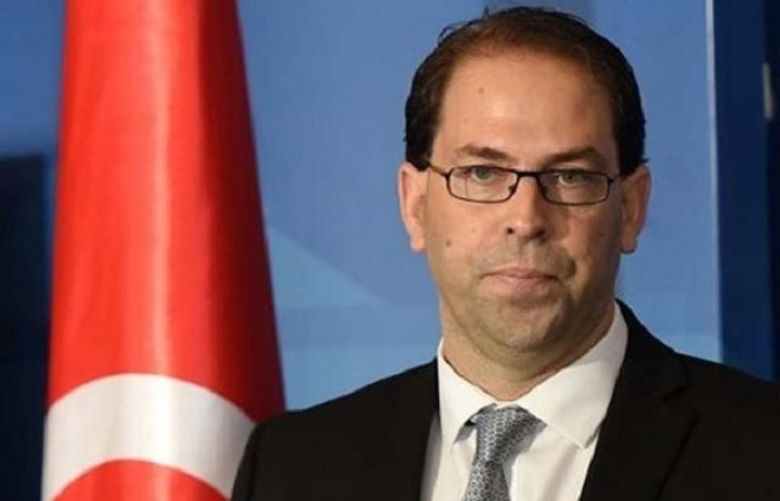The Tunisian ruling party Nidaa Tounes has suspended the membership of the country’s Prime Minister Youssef Chahed over his spat with the Tunisian president’s son.
"The party has decided to freeze the membership of PM Chahed," Nidaa Tounes said in a statement Friday.
The suspension came after Chahed delivered a stinging attack on infighting within the party that he said was restricting his government’s ability to make the economic reforms needed to revive the economy.
“Secondary political conflicts ... have disrupted the work of the government, holding it back and blocking the reform process and the decisions necessary to achieve economic growth,” Chahed said in a televised address to a policy conference.
He also vowed that “despite the lack of political support for the government”, his government would move ahead with economic reforms next year, including the reform of subsidies and social funds.
The president’s son Hafedh Caid Essebsi, who is himself the ruling party’s leader, has been trying to topple the prime minister for several months. He had earlier called for Chahed’s dismissal over what he described as his government’s failure to revive Tunisia’s crisis-hit economy.
Chahed, in turn, said in May the president’s son had destroyed the Nidaa Tounes party.
The power struggle came to a head when President Beji Caid Essebsi in July called on the prime minister to resign, in a move backed by the country’s influential General Labor Union (UGTT), which is against Chahed’s economic reforms.
The moderate party Ennahdha, however, has thrown its support behind Chahed’s premiership, saying that the country’s stability would be undermined if he leaves office.
Ennahdha, which is the Tunisian parliament’s second biggest party, said the exit of the prime minister would hit stability at a time when the country needed economic reforms.
The North African country is often portrayed as the lone success story of the Arab Spring of 2011 but more than seven years after the ouster of longtime dictator Zine El Abidine Ben Ali, the country is still battling high inflation and unemployment and sometimes violent social unrest.
The deepening spat within the ruling party comes as the government is obliged to unveil its 2019 budget by mid-October.
The inflation rate, which is expected to average 7.8 percent this year, and the unemployment rate, which has remained over 15 percent, helped stoke an outbreak of violent unrest in January.







